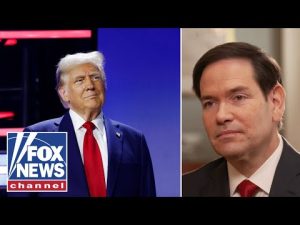In a world where every American seems to be counting every last nickel and dime, the idea of a rebate check from the government sparks a bit of excitement. The conversation began with the topic of tariffs, which some have proposed could be used to bolster Americans’ wallets. The thought of suddenly finding a little extra cash is always appealing, especially when connected to something like tariffs — an abstract concept most people hear about but rarely connect to their daily lives.
While President Trump is reportedly considering a rebate for individuals within certain income brackets, based on revenue from tariffs, not everyone sees eye to eye on this plan. Some argue that instead of sending Americans a financial pat on the back, any extra cash should go toward tackling the United States’ growing national debt. After all, every taxpayer knows the importance of not spending more than they have — a lesson that apparently gets lost somewhere inside the Beltway.
Kevin O’Leary, a well-known businessman, suggests a bit of fiscal restraint might be more beneficial in the long run. The idea of pouring these funds into reducing the national debt certainly has its appeal. It’s not just about today’s balance sheets; it’s about ensuring that future generations aren’t left with the tab for our current financial misadventures. As interest rates fluctuate, the cost of servicing that debt climbs, a burden felt across political lines.
Turning back the pages of history lends credence to President Trump’s musings. Between 1870 and 1913, tariffs were the backbone of America’s revenue system. However, equating those days to modern times might be a bit of a stretch. The olden days, with their horse-drawn carriages and telegram messages, were a far cry from today’s fast-paced economy. But the idea of simplifying the tax system, replacing it with tariffs, might just be something revolutionary, saving Americans from the headache of the current tax complexities.
Critics, however, argue that while America has indeed been the largest market on Earth, tariffs effectively act as a tax on consumers. Sure, tariffs make for great soundbites, fanning the flames of nationalism as countries like Vietnam or Canada adjust their strategies. But could this really be the financial boon that addresses the debt in a meaningful way? Perhaps. Yet, in the grand theatre that is American politics, for every thrilling idea, there’s often an equally compelling counterargument, reminding everyone that flashy checks in the mail might not solve deeper, systemic issues.







